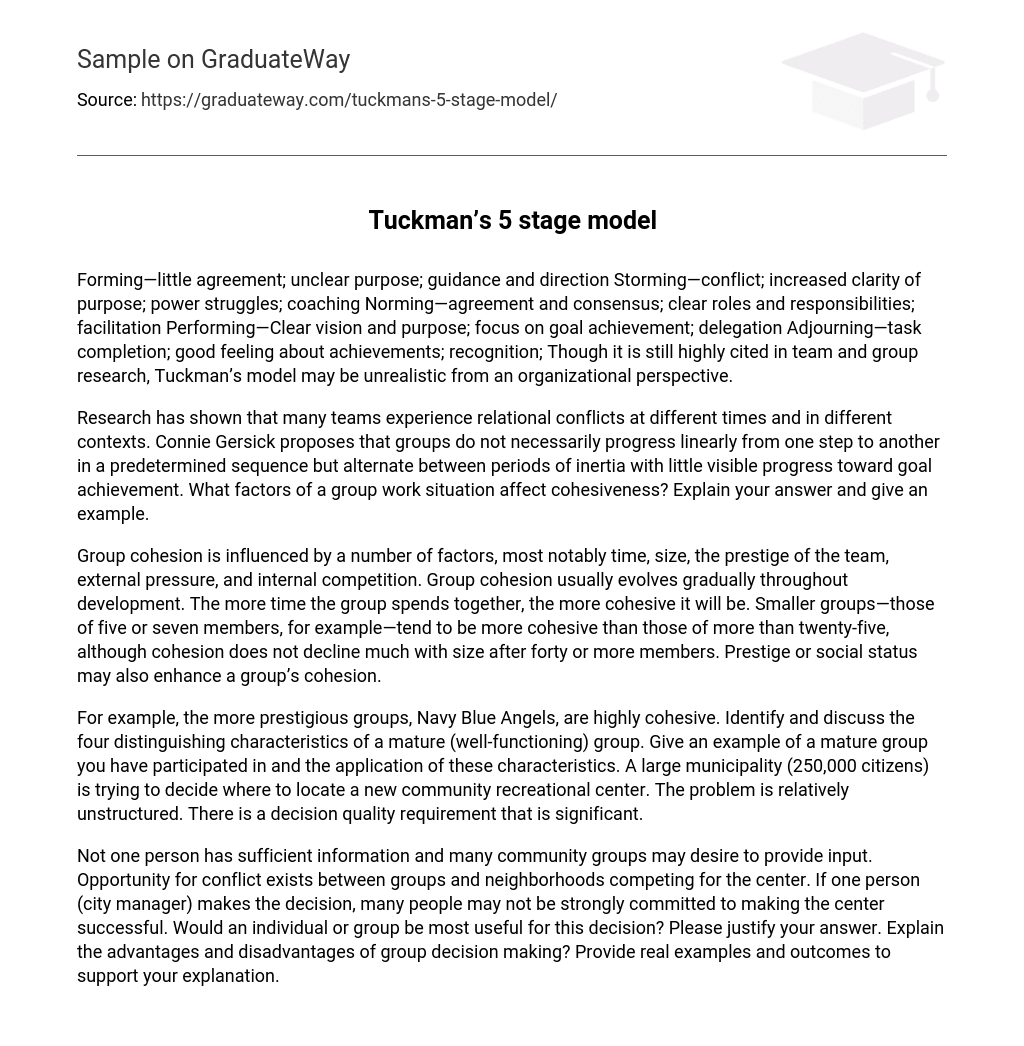Forming—little agreement; unclear purpose; guidance and direction Storming—conflict; increased clarity of purpose; power struggles; coaching Norming—agreement and consensus; clear roles and responsibilities; facilitation Performing—Clear vision and purpose; focus on goal achievement; delegation Adjourning—task completion; good feeling about achievements; recognition; Though it is still highly cited in team and group research, Tuckman’s model may be unrealistic from an organizational perspective.
Research has shown that many teams experience relational conflicts at different times and in different contexts. Connie Gersick proposes that groups do not necessarily progress linearly from one step to another in a predetermined sequence but alternate between periods of inertia with little visible progress toward goal achievement. What factors of a group work situation affect cohesiveness? Explain your answer and give an example.
Group cohesion is influenced by a number of factors, most notably time, size, the prestige of the team, external pressure, and internal competition. Group cohesion usually evolves gradually throughout development. The more time the group spends together, the more cohesive it will be. Smaller groups—those of five or seven members, for example—tend to be more cohesive than those of more than twenty-five, although cohesion does not decline much with size after forty or more members. Prestige or social status may also enhance a group’s cohesion.
For example, the more prestigious groups, Navy Blue Angels, are highly cohesive. Identify and discuss the four distinguishing characteristics of a mature (well-functioning) group. Give an example of a mature group you have participated in and the application of these characteristics. A large municipality (250,000 citizens) is trying to decide where to locate a new community recreational center. The problem is relatively unstructured. There is a decision quality requirement that is significant.
Not one person has sufficient information and many community groups may desire to provide input. Opportunity for conflict exists between groups and neighborhoods competing for the center. If one person (city manager) makes the decision, many people may not be strongly committed to making the center successful. Would an individual or group be most useful for this decision? Please justify your answer. Explain the advantages and disadvantages of group decision making? Provide real examples and outcomes to support your explanation.





